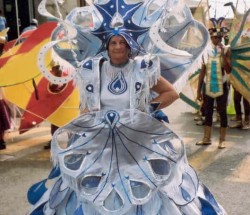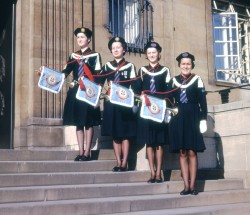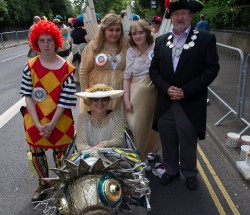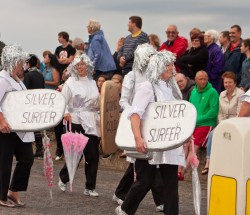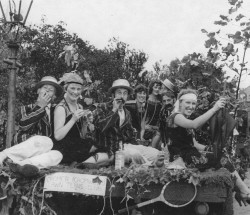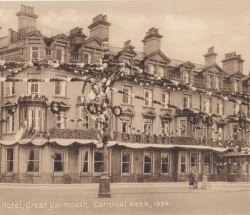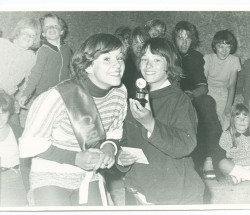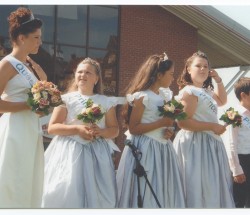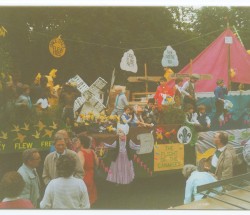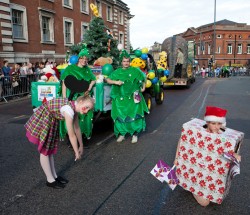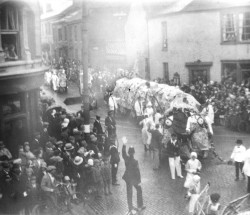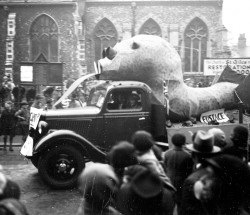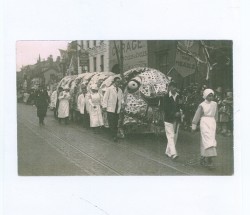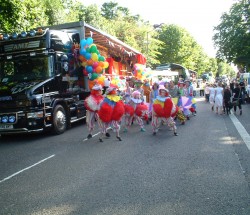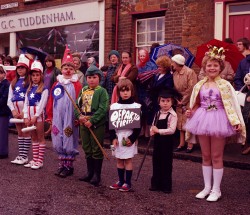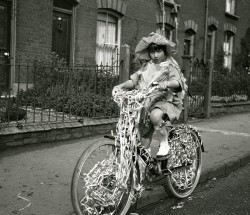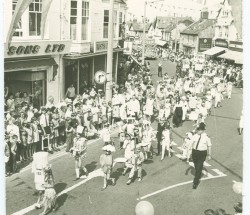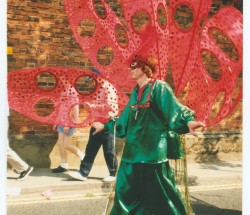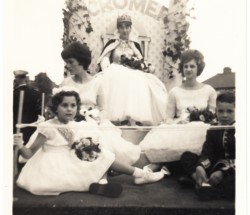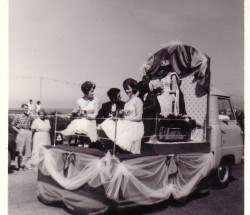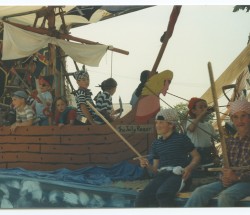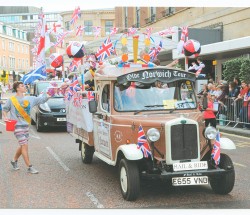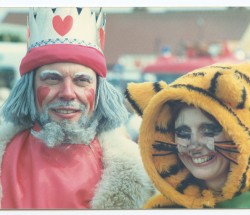Archive
Norfolk Carnivals
The Norwich Lord Mayor’s Street Procession is the largest community participatory event in the festive calendar of Norwich, with over 2,000 people taking part and drawing an audience of around 30,000. It is organised and run by Norwich City Council.
The Norwich Lord Mayor’s Street Procession has its roots in the late medieval period, Norwich having been given the right in 1404 to appoint mayors by King Henry IV. Early mayoral processions were linked to the medieval Guild of St. George, who in 1451 became responsible electing the mayor, with documents as early as 1408 referring to the figure of George in procession and making a conflict with a dragon. The Guild paraded in the mayor’s processions with St. George and a dragon, and although the figure of St. George was banned at the time of the Reformation, the dragon (which at some point became called ‘Snap’) was allowed to continue to participate, something that has continued up to the present day.
Norwich has a long track record as a city of festivity. The late medieval period would have seen a large proportion of the city population participating in a series of religious festivals throughout the year. The celebration of the saints days of parish churches alone meant festive activity every ten days or so, and festivities often had a processional element, such as processing around churches to ‘asperge (or bless) the premises’, something that can be seen built into the very architecture of certain remaining churches. Although at each stage of its history the city’s festivities have reflected the prevailing culture, there is also plenty of evidence where the values presented were at odds with that culture.
The roots of the modern Procession lie in the change, post Reformation, to a more civic focussed society, with civic identity coming to the fore and the Mayor and Alderman very active in the life of the city. Previously religious processions were adapted to Guild week, which was held around Midsummer and included entertainments, fools, lots of visitors and, of course, Snap the Dragon.
(This article draws up on a talk given by Dr. Victor Morgan (Senior Lecturer, UEA) and various web-based sources. We hope to expand upon it and deepen it over the next year)
Norfolk County Council Collection
Images from the Picture Norfolk website: www.picture.norfolk.gov.uk


